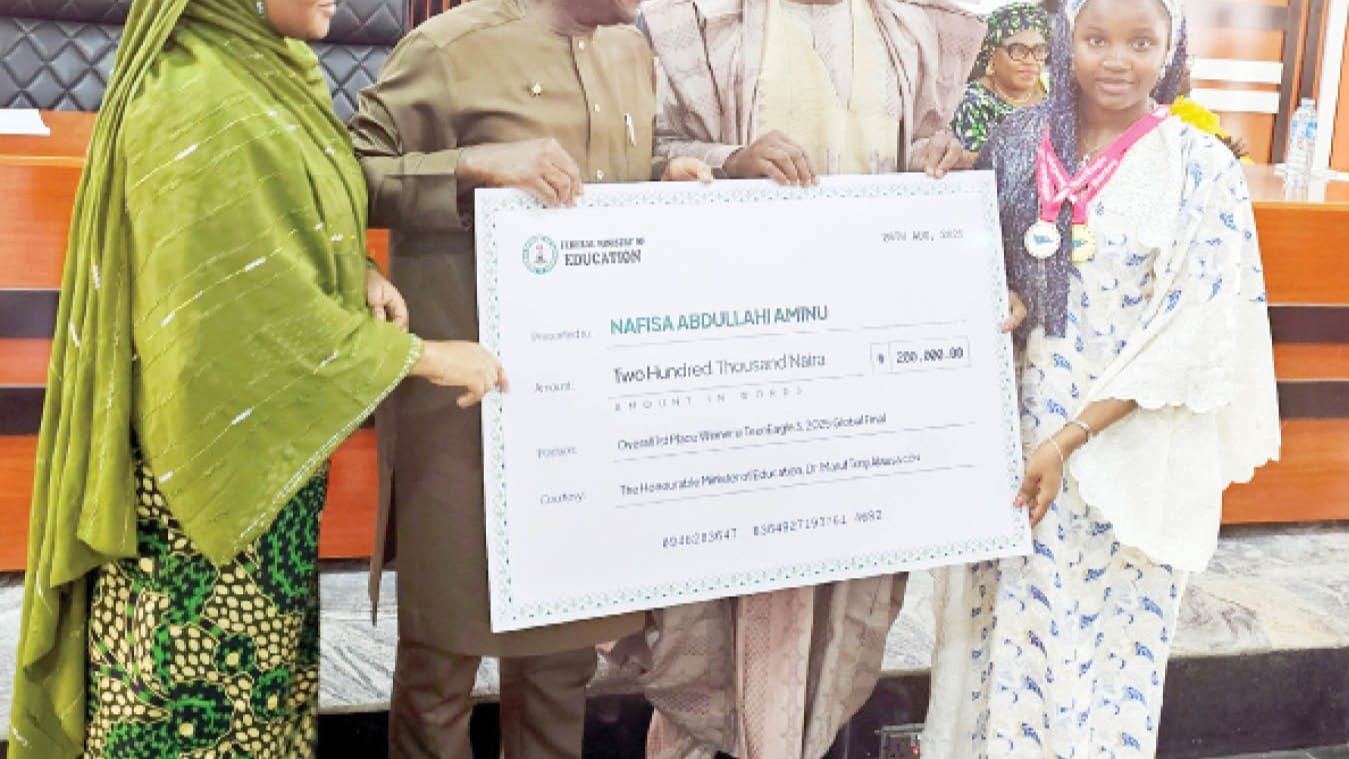Abuja, Nigeria – A wave of criticism has swept across Nigeria following the federal government’s decision to award only ₦200,000 to Nafisa Abdullahi Aminu, a 17-year-old student who emerged as the Overall Best in English Language skills at the 2025 TeenEagle Global Finals Competition held at the University of Surrey, United Kingdom.
Nafisa, along with teammates Rukayya Muhammad Fema and Hadiza Kashim Kalli — all from Nigerian Tulip International College (NTIC) in Yobe State — triumphed against over 20,000 competitors from 69 countries, earning top honours in English proficiency, debate, and talent categories. Their success was widely hailed as a beacon of academic excellence and proof of Nigeria’s potential on the global stage.
However, the celebration quickly turned sour when Education Minister Dr. Tunji Alausa announced a ₦200,000 reward for Nafisa and ₦100,000 each for her teammates. The decision has ignited a national debate over the country’s value system, with critics comparing the modest token to the lavish rewards recently offered to victorious athletes — including $100,000, housing, and national honours.
Former Communications Minister Isa Ali Pantami led the calls for fairer recognition, arguing that Nafisa deserved the same level of support given to sports stars. Many Nigerians on social media described the government’s gesture as “insulting” and “demotivating,” questioning how such minimal recognition could inspire young people to pursue academic excellence.
“The token for the winners is disappointing,” education expert Bello Ogundele told Daily Trust. “This is not just Nafisa’s victory — it’s a victory for the nation’s education system. A scholarship, mentorship, or a national honour would have been more appropriate and symbolic.”
The disparity has reignited long-standing concerns over Nigeria’s prioritisation of entertainment and sports over education. Commentators argue that while athletes are often celebrated with fanfare and wealth, academic champions are too often met with symbolic gestures that do little to nurture future innovators and thinkers.
For Nafisa, the recognition — however small — remains a milestone. She dedicated her award to Yobe State Governor Mai Mala Buni for his continued support of education. Yet, for many Nigerians, the broader question lingers: until academic achievement is rewarded with the same seriousness as other fields, how can the nation hope to build a future driven by knowledge, innovation, and intellectual leadership?









